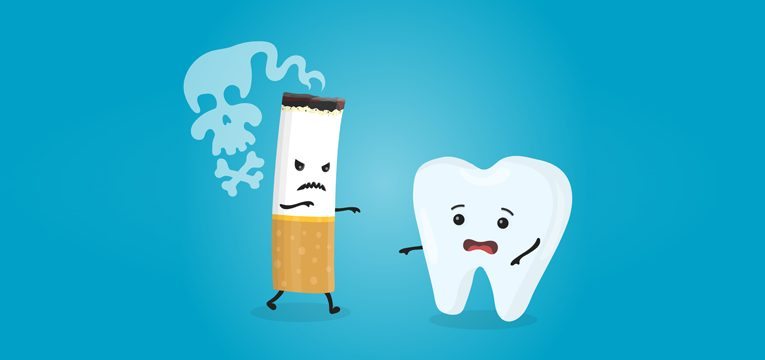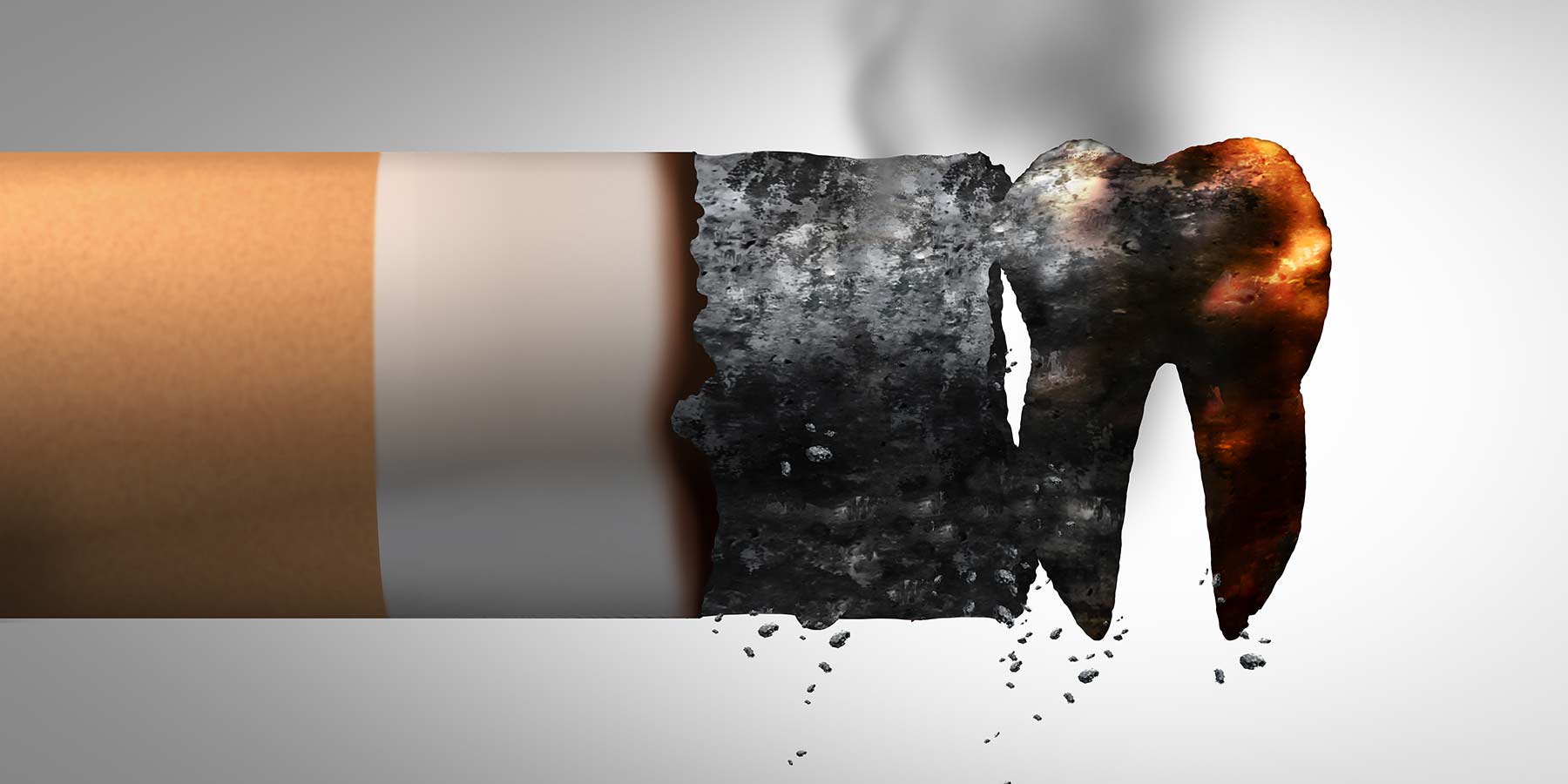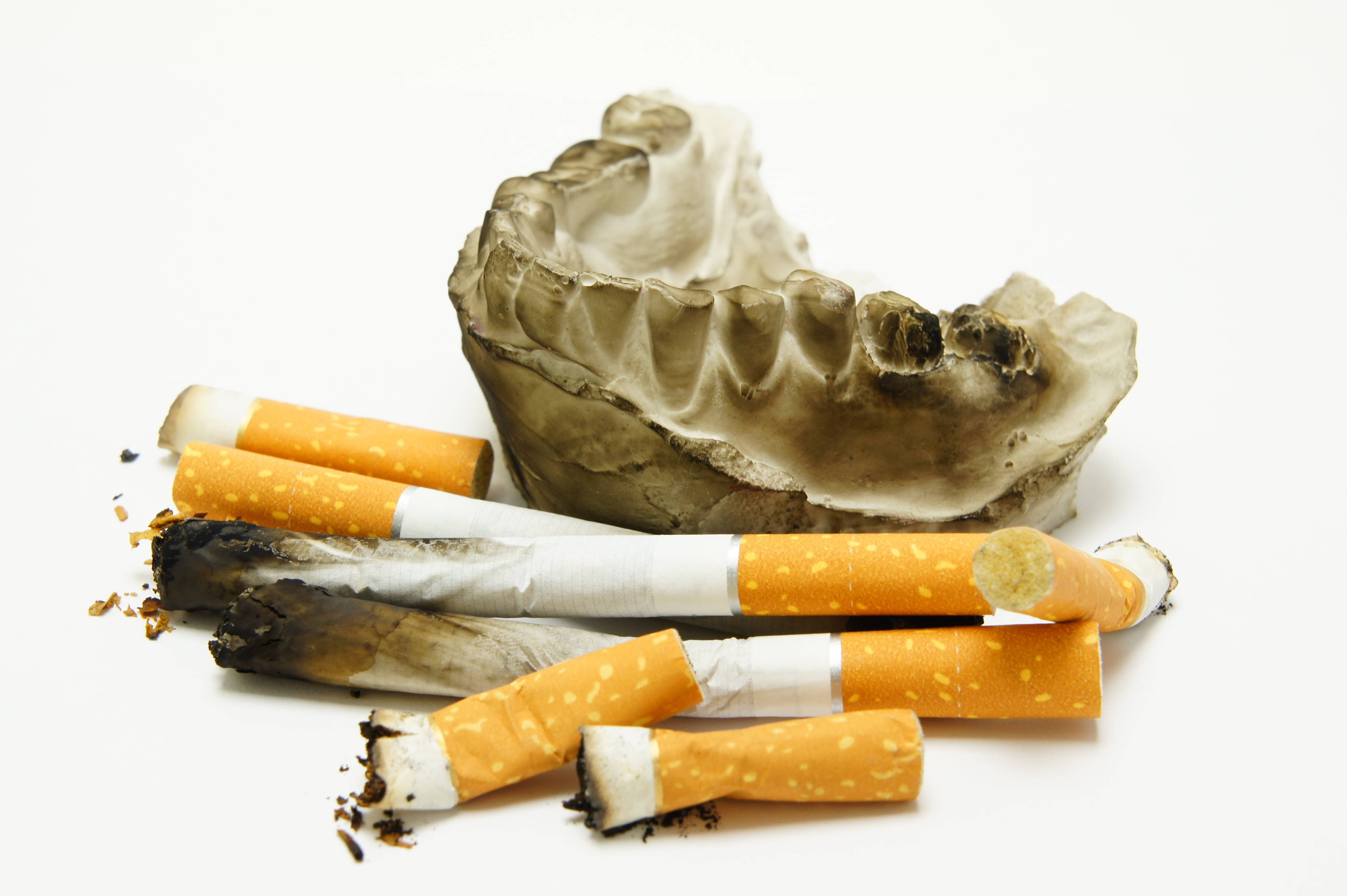
The effects of smoking on teeth and oral health:
by Dr. Shipra Rawal ( Dr. Rawal Dental Centre )
Smoking
No matter how you smoke it, tobacco is dangerous to your health. There are no safe substances in any tobacco products, from acetone and tar to nicotine and carbon monoxide. The substances you inhale don’t just affect your lungs. They can affect your entire body.
How smoking affects your teeth
Everybody knows that smoking wreaks havoc on your health. While your teeth may not be the first thing you think of when considering the dangers of smoking, any kind of tobacco use can bring about some serious damage to your mouth.
The fact is that smoking and tobacco use can be difficult to stop. Even if you’ve tried before, there’s a good chance you didn’t stick with it. That means you’re doing even more damage to your smile by continuing to use tobacco.People who smoke have a higher risk of gum problems, tooth loss, complications after tooth removal and surgery in the mouth, and developing mouth cancer. They are more likely to get infections and don’t heal as well as non-smokers. In the following pointers,Dr.Shipra Rawal of Dr. Rawal Dental Centre explains to us the effects of smoking on our oral health:
Smoking leads to dental problems, including:

- Bad breath
- Tooth discoloration.
- Inflammation of the salivary gland openings on the roof of the mouth.
- Increased build-up of plaque and tartar on the teeth.
- Increased loss of bone within the jaw.
- Increased risk of leukoplakia (white patches inside the mouth).
- Increased risk of developing gum disease, a leading cause of tooth loss.
- Delayed healing process following a tooth extraction, periodontal treatment, or oral surgery.
Smoking and gum (periodontal) disease
Smoking can cause gum disease. Gum disease (also called periodontal disease) is caused by an infection that destroys the bone surrounding and supporting your teeth. This bone holds the teeth to the jawbone to chew food. Bacteria and food debris called dental plaque can cause gum disease.
If left on teeth and gums, plaque hardens to form calculus or tartar. The plaque and calculus irritate the gums around the teeth. This is often seen in people who smoke. The two stages of gum disease are gingivitis and periodontitis.
If periodontitis is not treated, the structures that hold the tooth to the gum can become damaged.
Teeth may become loose, fall out by themselves, or a dentist may have to remove them.
How does smoking contribute to tooth loss?
There are several reasons you have a decreased chance of preserving your original teeth if you’re a chronic smoker.
Delayed Healing Process
Smoking tobacco reduces the oxygen in your bloodstream. It is important to remember that oxygen is necessary for healing processes in your body. When you experience oral disease or dental conditions that require surgical procedures (tooth extractions, dental implants, root canals, etc), this means a chronic smoker will heal more slowly and face a longer recovery time. Smokers are also at a higher risk of infection, because their gums may not be able to heal properly.
Oral Cancer
You have probably heard time and time again that smoking cigarettes lead to lung cancer and heart disease. But did you know that tobacco is a risk factor for oral cancer as well?
Oral cancer, which includes cancers of the lips, tongue, cheeks, floor of the mouth, hard and soft palate, sinuses, and throat, is considered a lifestyle disease. This means that the majority of cases are related to tobacco and alcohol use. Mouth cancer affects more men than women. A typical person at high risk for mouth cancer is a male, over age 40, who uses tobacco and/or heavy alcohol.
According to a survey, approximately 90% of people with oral cancer are tobacco users, and smokers are six times more likely than non-smokers to develop oral cancer. Additionally, users of smokeless tobacco, commonly known as chewing tobacco, have a 50 times more likely chance of developing mouth cancer.
Preventing teeth and gum problems in smokers
Dr. Shipra Rawal advises, if you are a smoker, there are some things you can do to prevent tooth and gum problems,

- Try to quit smoking – speak to your doctor, dentist or call the helpline for guidance and support
- If you’re finding it difficult to quit smoking, try and reduce the number of cigarettes you smoke to start off with.
- Clean your teeth and gums twice a day with fluoride toothpaste.
- Use dental floss (for small gaps) or interdental brushes (for big gaps) once a day to clean between your teeth.
- Visit your dentist every 6 to 12 months. They can provide advice about the proper care of your teeth and gums at home and find problems early. Regular visits can help to keep your teeth and gum healthy.
- Avoid having a dry mouth. Drink plenty of water and chew sugar-free gum to stimulate saliva flow. It is very important if you take medications that cause dry mouth.
- Limit alcohol and avoid recreational drugs.
How Dr. Rawal Dental Centre can help
Giving up smoking is the best way to fight gum disease, but it’s also important to practice good oral hygiene. Dr. Shipra Rawal recommends daily flossing andbrushing after every meal using fluoride toothpaste. Perhaps the best way to forestall future gum issues is to visit a dental clinic regularly. At Dr. Rawal Dental Centre we carry out regular examinations to make sure that your teeth, gums, and whole mouth are healthy. We’ll examine your cheeks, tongue, and throat for any signs of other conditions that may need more investigation. We know that giving up smoking is not easy. Many people have tried and failed. Please be assured that it’s not a character flaw — it’s a difficult habit to kick. Our staff is very friendly and approachable, and we want to stress that you shouldn’t feel embarrassed or avoid visiting usfor fear of being judged. We don’t want to lecture you on stopping smoking. Our aim is simply to ensure that we’re doing everything to keep your mouth healthy!